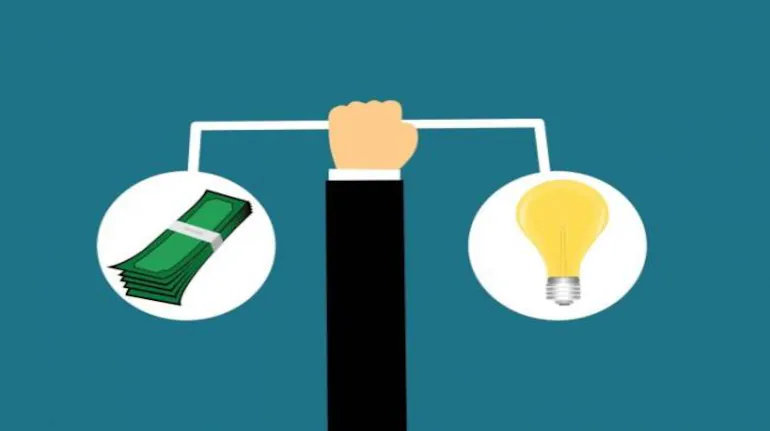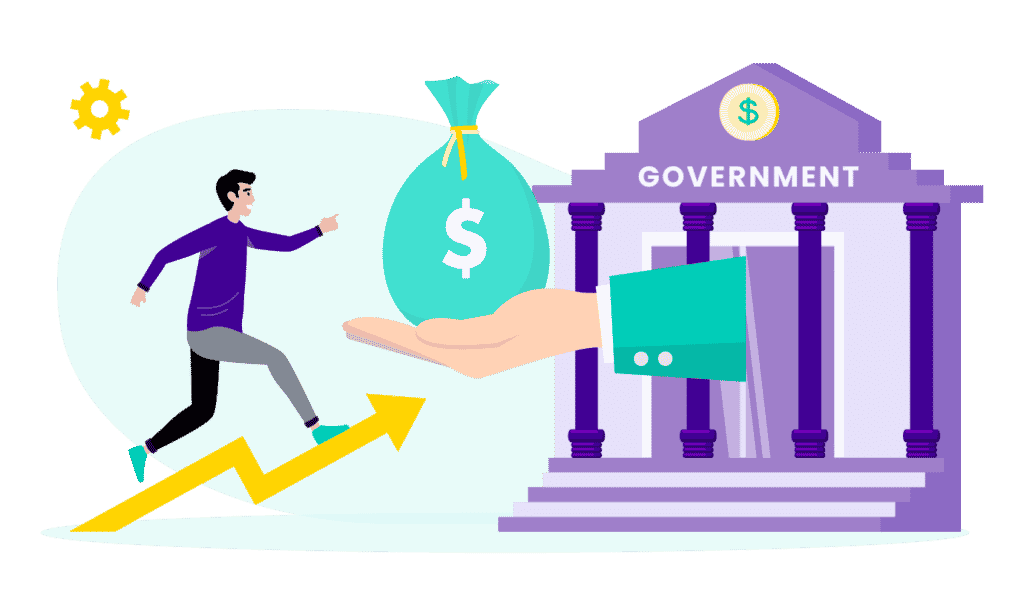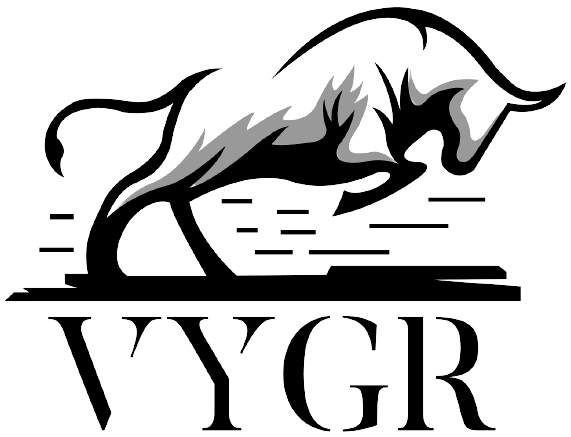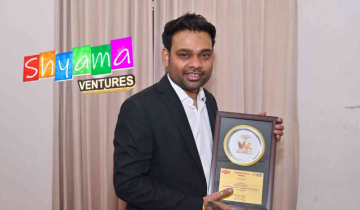Founder and CEO of Kansaltancy Ventures, Tushar Kansal is also an angel investor himself and has a network of over 21 years in business that he's gathered, he has funded over 50 million dollars of Investments, over 500 plus companies.
Tushar Kansal first and foremost highlighted the key aspect every investor needs, Tough skin – he stated that a person needs to have a tough exterior because as an investor, you cannot say no with a smile on your face. You will be seen as a selfish man and a person who is not bothered. And that is absolutely OKAY!

His Story -
Tushar shared his life story with us, on how he started with Deloitte as a Financial Advisor and handled private equity assignments and there he saw and learned what is it actually to invest money and the kind of gains you can make out of it.
As a matter of fact, income tax in India is at 30-40%, the UK is at 45%, and the U.S. is at 40% but when you see the capital gains tax, they come out to be 0-15%. Money if moved globally like Dubai, Singapore, the US, UK in an investment form, will be taxed less. The rich of this world are using this tactic to earn more money. Every country wants its rich to invest so that tax is less and then why would you do anything on the income side, you maintain your balance sheet.
He realized the value of this concept. After being in brand capital, that is Times of India Venture arm, he learned how to do Investments, term sheets, and shareholders agreements and then there was the corporate journey; MTS, he raised three billion dollars for them. Finally, in 2016 he decided to start his own consultancy venture. There were only 400 startups registered with Startup India, today they are one lakh. he was like maybe at the infection point. So that is the Journey that he has seen over the last eight years.
The Start-up Culture Changes -
Speaking on the Start-up Culture Changes Turshar recalled how the China Story played out, Tiger Global, Alibaba, and SoftBank saw that consumer stories, consumer tech companies’ growth, and the growth was literally through the roof. Then they decided that if China can do that from 2009-2014, which was 500% annual growth, so the same thing will happen in India. They wanted to be early movers here, so Tiger Global was the first one, and they started investing money foreign into sectors such as E-commerce companies, Flipkart, Myntra, Retail- tech companies, Zomato, Swiggy, etc. These sectors were hot. The Indian VCs took the cue from the foreign VCs. After covid specifically with the coming in of Fin-tech start-ups, people using their phones a lot for transactions, the Indian government stack of Aadhar and UPI, the previous companies matured immensely and started investing on their own by opening new companies, so, these sectors like Fin-tech, AI, Machine learning, heath-tech, Agri-tech to an extent, became hot sectors. And Tech was the binding component for all of them. Because of tech-enabled fast expansion. You cannot choose now. Jio came in 2016 and today 50 crore households are connected through Wi-Fi and there are 80 crore mobiles, which have a smartphone kind of features. So, Wi-Fi/Internet is available readily. All of these people are using mobiles 8-10 hours per day because they are hooked on to the mobile. So, if you are ignoring the mobile as a platform to connect with people and grow your business then, you are not going to make it. So, that is the tech component which is the mobile and somehow you have to link your business through mobile which means whether meet through the app or some other way or something.
_1689843815.jpg)
Role of Tech in Startups -
Tushar also highlighted the role of Tech for Startups he showed how tech overlap is needed. If it isn’t used, it's a loss because your competitors are crunching your data and showing targeted ads, and targeted data to others. There is a difference between starting a business and a startup. Selling your products in a physical space is a traditional business, but how many shops can you open? There are 50 malls in India and the rent is very high that if you are trying to do an offline expansion- brick and mortar expansion, it costs a lot. You will get foreign equity funds but not venture capitalists. There is no follow-up round for the venture capitalists and no return and that brand will close. Now, a startup, let's say Mama Earth, their business model is D2C. They have warehouses in the backend but will sell their products directly to the customer online through their own websites or other digital platform and with delivery handled by established logistical players. they don’t have space issues for warehouses, high rent issues, logistical issues, etc. The revenue growth is high so that the evaluations grow fast and you can raise large sums of money and finally you can give them the exit through the IPO which they want. The startup basically understands the ecosystem in a way that they can expand very fast using technology, even if using large amounts of money but create value for all stakeholders.
Funding Winter Concept -
Tushar stated how finance is driven by economies and the economies of the world runs from the United States, for the pure reason that 63 percent of global transactions, happen in dollars. The dollar is a reserve currency. So, the actions of the U.S federal Reserve and the U.S. government; the Federal Reserve is the Central Bank of the US which prints the currency. The ramifications of their actions are felt throughout the whole world. The U.S. printed a lot of money during covid times to support their citizens, cooperates, businesses, etc and everybody had money to spend. But that huge sum of money was chasing a small supply chain of products and services. So, this gave way to inflation. The inflation in the US is going through the roof. It is 7-10% whereas usually it is 2-3%. To control that the Federal Reserve has to increase interest rates and when interest rates increase, the supply of money is constricted and that is felt around the globe. India is a part of Emerging Markets. Investing money in India is considered risky. When that money is constricted, venture capital funding also suffers.
Where’s the money right now? At the sidelines. if we see at the elevation capital side, it raised more than 800 million but this year, there are more than 700 million left. There is funding winter happening but investors are waiting for juicy deals because down grounds are happening. Series A, B, and C down-ground evaluations are low evaluations to the previous round. There is a lot of money waiting on the sidelines but it is waiting for the right valuation to get invested because valuations have cracked by around 30 percent. That's a lot.
The Funding Dynamics -
Speaking about the Changes in Funding Dynamics, he said, if the promising founder has answered all of your questions in like 40 minutes and he’s clear-headed and you can see the passion with which he wants to solve a particular problem, so there were VCs who were cutting fast checks, especially if the founder had already done it before. If they have succeeded once maybe in the past, sold something, and then come again. Look at a lot of these companies which the founders had, already got an exit or they had done a startup before, the checks were quite easy. First of all, you have to save money for investing in follow-on rounds of your investing rounds. You need to save the old investments. The problem is for fresh rounds of investing due to difficulties in the U.S.
ed_1689843700.jpg)
The Commission of Elections & Investments -
We have national elections coming in the next year. While we're already experiencing funding winter, political aspects create uncertainty. It's like a double whammy that's perhaps coming to us in 2023-2024. What happens in the election time, the stock markets they've come a bit now because your FIA money feels they need to slow down a bit and start again once the picture is clear. Having a stable government at the center, the continuation of policies, and especially this government has done so much for startups and Investments that the investors would want this government continues. People used to talk about decoupling, that foreign markets, developed markets, and emerging stock markets, should be decoupled. The dynamics are fairly different. During covid time, our government supplied 80 million people with food from the Food Cooperation Of India’s godowns whereas the US, Europe, and China gave money. Our government did the right thing, and that is why we have control over inflation. In GDP and growth, we are the largest. In the US, if we leave the top 25 stocks, else everything is down. Our market is still going stronger than ever. So, we have decoupled. But elections are a very sensitive matter. The rise and fall of any state government also affect the market, but it can be handled well. Because it was a state election, it was not a Lok Sabha election. States like Karnataka, Gujrat, and Maharashtra are the engines of markets and will have some bearing. We will enter a wait-and-watch period.
Types of Founders -
Tushar highlighted the two types of founders, one is who had started thinking and doing stuff to create an entrepreneurship career. They have risen tremendously. The youth is excited about the entrepreneurial mentorship cell. They see shows like shark tank and know the vocabulary, even a person coming from a non-financial background has some idea as to say what and look out for who. I mean democratization has happened in this space.

For women founders, India is not a bad place. For example, 12.5 percent of our pilots are women. This is the highest if you compare it with Europe, Japan, or the U.S. Tushar himself is the husband of a working professional woman. My wife was a senior vice president with Access Capital, head of capital markets, North Region. He has seen that the problems that a woman faces during her professional life, are real. You are in a meeting and there are 12 men and 1 woman, it is so uncomfortable because some of them will actually either stare at you or they'll make you feel uncomfortable. If you're driving and the driver is constantly looking at you, it is not right. Tushar means the initial first 10 minutes are spent in establishing the point that I'm a woman but he can talk sense. Also, there is the fact that they are supposed to take care of the house more than the men. The leadership is still there, the blame is still there and so it is double work. But things have changed. In the startup field, he has seen women founders do exceptionally well and from a funding perspective, no investor now will say No just because you are a woman. In fact, the investors of Sheroes, a company that was set up to promote women in the workplace, thesis wasn't to invest in such a company but they convinced their LPs to invest in this company because it's a unique idea for promoting women in the workplace. I believe that you know this will grow even bigger. An investor cares about their return on investment.
About Kansaltancy Ventures -
Tusahr said that he is in a space where he doesn't just see these ideas and evaluate them but also brings them to a point where they are market ready. Companies come to him and he establishes whether he would be able to fund them or not because he can't have an open thesis. He has a closed thesis wherein he knows exactly what he can do and what he can't do. The thesis is like a mandate basis; at what stage of the business, you are investing, etc. based on the thesis, you have raised money from your LPs. What happens is 90% of the people who are approaching him, but they are not reading or looking at his website. Analysts are trained to identify companies that fall into the thesis, make an investment doc and then present it to the committee. Every Monday, a doc is presented to the management and there are so many of them. Every analyst can present five of them in a week and that for five minutes each. So, his pitch as a startup needs to be to the analyst.
Secondly, the companies which come to him and he doesn't fund but he tells them that he really likes their idea and that we think we can get you funded from our 450 foreign investor connects or Indian connects. So, we sign up them for three months. We first make them investment ready, which means from the pitch deck, business plan, and financial model valuation, they are helped with unit economics, how to present unit economics, MIS, what are the term sheet clauses, exit clauses, what are the due diligence documents they need to prepare, etc. A lot of these terms startups come to know very late in their journey. So for the first month, we are preparing them and then we get them on calls with the investors and then take it from there.
Mentoring -
Then there is a mentoring angle to it also. For example, there's a fantastic company he’s dealing with nowadays who are his clients. They have got two term sheets already. So, he tells them in one of the term sheets there was an intellectual property mentioned. Even with 15 years of experience in LNT, he doesn’t know what intellectual property is. One has to never assume that anything is done with common sense. You have to explain them from the basics because these things later on matter a lot. For the investor, intellectual property matters a lot because it's what they are betting on to start.

Pricing model -
Tushar is charging in the initial stage for preparation and then later on success. But he isn’t into the equity model like an accelerator because of that model. He believes in paid equity, not free equity. He doesn't think a lot of players in the market are justifying, he invests himself as well.
Past Investments -
Tushar has done an investment in Alimony Technologies. They have created four kinds of robots and because the Supreme Court of India has banned manual scavenging of Municipal civil lines, their robotics scavenger is seeing very good attraction. Next, he has invested in Indus B2C Global, it's a hair extensions export company and they are doing good work by exporting hair extensions to Africa, Russia, and China. India has export of around 1 billion dollars of hair every year. This person was very close and had recommended him.
Term Sheet -
Whatever mode and structure of the investment which the investor is making he encapsulates it in the form of 12 to 20 pages. It gives you the amount you will be investing, the mode of investment as in will it be straight away taking your shares against evaluation or will you be taking some instrument like preference shares, debentures, warrants, etc, what are the structure and the vehicle, and thirdly what other protections the investors is having. For example, they will have certain covenants which protect the investor in the future. There is a right of first refusal, Tagalog clause, drag along clause,anti-dilution clause and there are exit options. The main problem in India has been since the time Venture Capital picked up face its Exits. In India for long-time, loss-making companies can not have gone IPO. You need to be profit-making for 3 years. But major tech companies are under losses because they have a customer base, and just add ways to just monetize them in some way or another. But now, with changes from SEBI, all the popular consumer-facing companies have gone IPO as they have a trusting customer base. SEBI also had a clause where they would have a 50% retail quota. And if you cannot sell that 50%, your IPO will devolve. Now, if you come to that stage, you might not ever be able to show your face in the market. It is such an embarrassment. Now, that level is at 10-15%. Now the market making is largely in the hands of the institutions, which is a better way to do it. Thirdly, the IPO valuations in the market. Now this term sheet has to have everything in mind and then put forth clauses. They will have various other clauses as well. You can negotiate. You need to be specific.

Confirmation Bias -
in IPO market making, you want your shares to be in maximum hands but also at the same time very strong hands which have staying capacity. If your shares are in weak hands, they will sell your shares and the value will decrease. You want to have partners like Goldman Sacks, LIC., etc. In a private IPO, you want to have people who can invest further and bring more on. Every investor wants to invest together. You start trusting people who have proven themselves and you might need to do the due diligence from your side as you trust that person. Some people have written in their thesis that they will not Lead investment and also invest with other people. They are protecting themselves.
Role of a Mentor -
If you don’t have any clue about the dynamics of the sector you are about to enter, if you have no clue about any Facts and Agreements, you can never run a company. If you have a mentor, who has experience and a workable knowledge base of everything and is there to guide and teach you as well, then you will reach new heights. You will not make financial or strategic mistakes. For a start-up, you need to do everything. From start to finish. so, if a mentor is there to motivate you, you will feel good. It’s also good if that person has some skin in the game. There are people in the cooperate world who have spent more than 15 years and are now disconnected from real college life and they want to give back as they have now earned, they turn out to be very good mentors.
If I believe in a founder, I will do that.
Next Boom !-
The flavor of the season is Artificial intelligence. Mr. Sam Altman’s ChatGPT is on everyone’s mind. People are thinking that creative writing will end, adobe photoshop, Automation and standard funneling of emails, etc will all be through AI.
Tushar believes a lot in robotics but Indian robotics is the wrong place for it. The simple reason is that our population is huge. There is no economics of replacing a person with a robot unless it is for scavenging work. You have to build companies with people who can utilize manpower more smartly.
Health Tech and Fin Tech’ especially Fin tech because of the India stack, it's going awesome. Health Tech is going awesome because we consume a lot of wheat and rice. More than 10 crore Indians have diabetes and diabetes causes several health problems so the health Tech scene will remain strong. There's a large problem hence there are there is a scope for large numbers of solutions.
Ed-tech, some families are willing to pay a premium for entrance coaching and not pay anything else in other areas. People have been trying several things like a start-up proposed psychologists for classes 6, 7, 8, and 9thbut parents are not willing to pay for a psychologist. It's a niche play. Edex, Coursera, Vendantu, etc, content is so readily and easily available according to how much you are willing to pay.
Role of Indian Govt -

It played a huge role. There were only 400 startups before the government Startup India scheme. People at that time didn’t know anything but now we have one lakh.
Invest India, on LinkedIn, they have all the top people in college on salary cuts and they work just because they believe in the Indian Story.
Atal Tinkering Labs for Machine level pieces of training.
They have also opened entrepreneurship development cells in colleges. I have done more than 300 webinars, talks, and events with such colleges plus corporate bodies. The students now have such excitement that now we have an option. It is a big thing.
The FDI, Foreign Direct Investment, in the last year, was 82 billion dollars and this is huge. Money is sitting on the sidelines and getting invested slowly. People have brilliant ideas and investors are ready. In India, the founders are still chasing the investors not the other way around. But this will change over time.
© Copyright 2023. All Rights Reserved Powered by Vygr Media.









